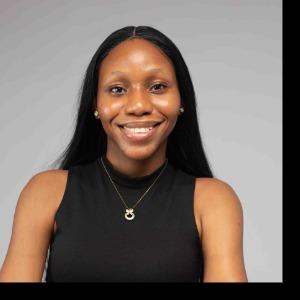How Women Are Navigating AI-Driven Hiring Tools In 2025

Let’s be honest, landing a job in 2025 feels like a full-time job on its own.
Artificial Intelligence is now involved in almost every part of the hiring process. From resume screenings to virtual interviews, they are often the first “gatekeepers” job seekers have to pass.
According to Business Insider, companies like Meta are preparing to use AI-driven hiring tools to screen candidates and conduct early interviews. Meanwhile, hiring managers at top firms say applicants can get disqualified instantly for minor mistakes or AI-generated content that feels inauthentic, as reported in this Fortune 500 recruiter roundup.
It doesn’t help that women are overrepresented in roles most likely to be automated or disrupted by AI. But the good news is women are learning to work with the system, not just around it. They are using smart strategies to level the playing field and advocate for more equitable hiring.

Learning More About AI
More women are now educating themselves about how AI-driven hiring tools work and how they can be biased. Research from institutions like MIT and the University of Washington has shown that AI systems often favor resumes with male names or language, while undervaluing female-coded terms or titles. To navigate this, women are using tools like Jobscan, VMock, and ResumeAI to tailor their resumes to each job description. These platforms help align your skills and experience with what AI-driven hiring tools are looking for, without losing your voice or authenticity.
An 2025 Harvard Business School study showed that women were slower to adopt generative AI tools compared to men. A lot of that hesitation came from ethical concerns or a desire to keep things personal, according to the study.
Using AI As A Tool
But that is starting to change. Many women are now using AI as a support tool, not a replacement. They will ask ChatGPT to clean up resume bullet points, help with formatting, or generate cover letter drafts. But they always do a personal pass to make sure it still sounds like them.
When it comes to interviews, platforms like Sapia.ai or Google’s Interview Warmup are helping women prepare for AI-led assessments. After practicing with these tools, many still choose to do peer interviews or coaching sessions to build real-time confidence.

Moreover, more women are getting more comfortable asking recruiters upfront if AI will be used in the hiring process. Thanks to new legislation like NYC’s Local Law 144, companies are now required to disclose when automated tools are involved and to audit those tools for bias.
Embracing AI For Career Growth
Career communities like Women in Data Science and Black Women in AI are hosting live chats, podcasts, and training sessions to help women navigate these changes. These spaces are empowering more job seekers to push for transparency, ask the right questions, and advocate for themselves with confidence.
Some women are taking things a step further by creating their own tech. Blendoor, founded by Stephanie Lampkin, is one example. It helps companies remove demographic data from resumes so that hiring is based solely on skills and experience. Women are now designing AI-powered platforms that can flag gendered or biased language in resumes, giving women the tools to tell their stories more clearly and confidently.
AI hiring tools are here to stay. But women in 2025 aren’t just reacting to this shift they are actively reshaping it. By understanding the technology, using it strategically, and advocating for more inclusive hiring practices, they are making sure that the future of work stays human.






